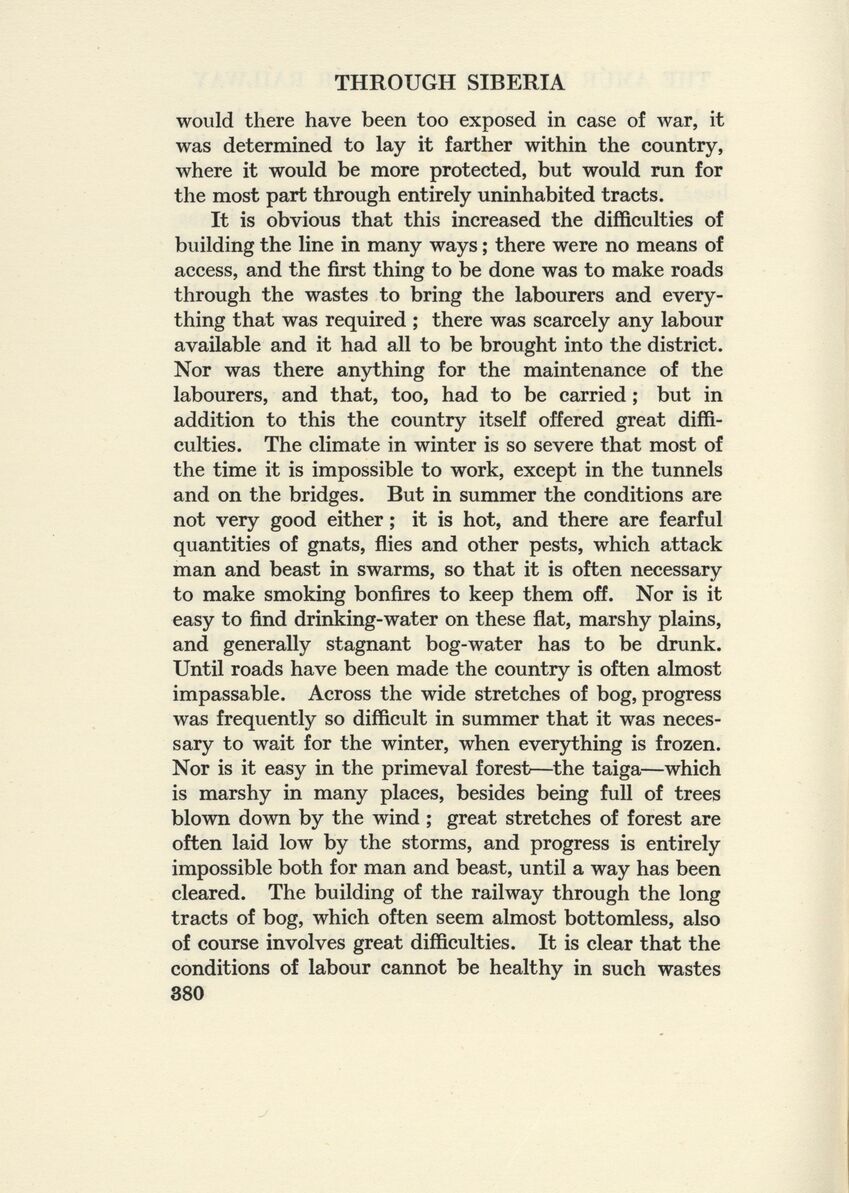
Full resolution (JPEG) - On this page / på denna sida - XVII. The Amúr district and the Amúr railway

<< prev. page << föreg. sida << >> nästa sida >> next page >>
Below is the raw OCR text
from the above scanned image.
Do you see an error? Proofread the page now!
Här nedan syns maskintolkade texten från faksimilbilden ovan.
Ser du något fel? Korrekturläs sidan nu!
This page has never been proofread. / Denna sida har aldrig korrekturlästs.
THROUGH SIBERIA
would there have been too exposed in case of war, it
was determined to lay it farther within the country,
where it would be more protected, but would run for
the most part through entirely uninhabited tracts.
It is obvious that this increased the difficulties of
building the line in many ways ; there were no means of
access, and the first thing to be done was to make roads
through the wastes to bring the labourers and every
thing that was required ; there was scarcely any labour
available and it had all to be brought into the district.
Nor was there anything for the maintenance of the
labourers, and that, too, had to be carried ; but in
addition to this the country itself offered great diffi
culties. The climate in winter is so severe that most of
the time it is impossible to work, except in the tunnels
and on the bridges. But in summer the conditions are
not very good either ; it is hot, and there are fearful
quantities of gnats, flies and other pests, which attack
man and beast in swarms, so that it is often necessary
to make smoking bonfires to keep them off. Nor is it
easy to find drinking-water on these flat, marshy plains,
and generally stagnant bog-water has to be drunk.
Until roads have been made the country is often almost
impassable. Across the wide stretches of bog, progress
was frequently so difficult in summer that it was neces
sary to wait for the winter, when everything is frozen.
Nor is it easy in the primeval forest—the taiga—which
is marshy in many places, besides being full of trees
blown down by the wind ; great stretches of forest are
often laid low by the storms, and progress is entirely
impossible both for man and beast, until a way has been
cleared. The building of the railway through the long
tracts of bog, which often seem almost bottomless, also
of course involves great difficulties. It is clear that the
conditions of labour cannot be healthy in such wastes
380
<< prev. page << föreg. sida << >> nästa sida >> next page >>